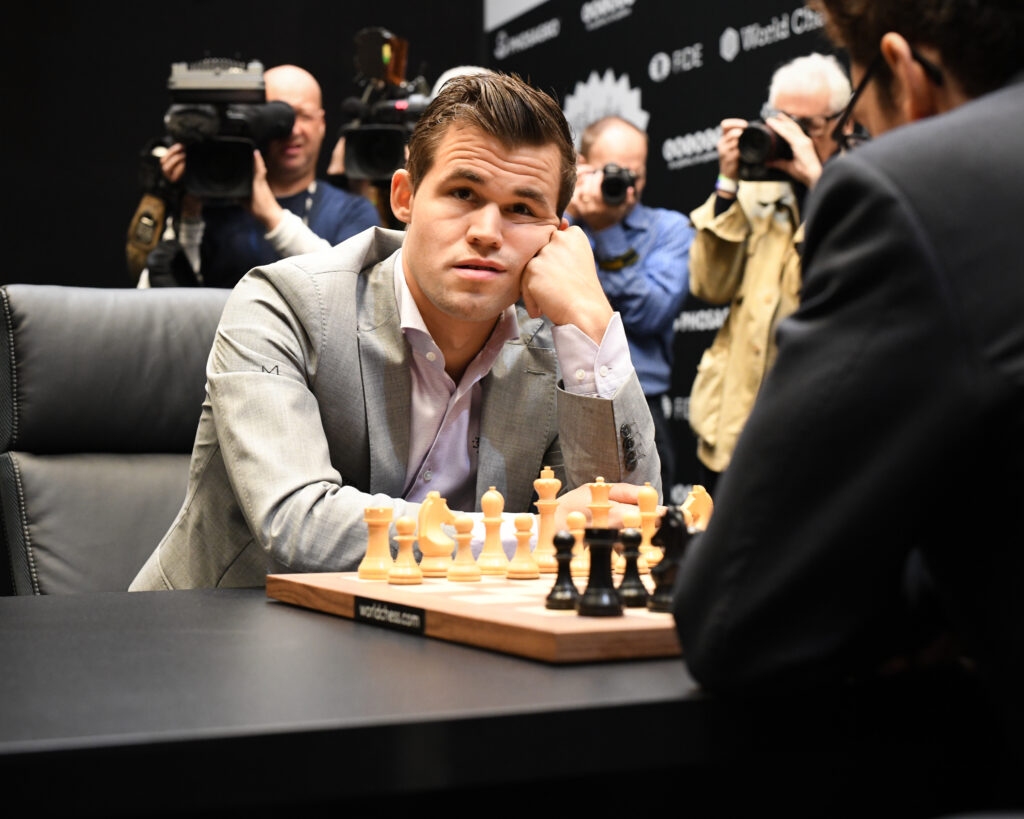World chess number one Magnus Carlsen has confirmed his participation in the upcoming World Blitz Championship, reversing his earlier decision to withdraw from another FIDE tournament. His change of heart follows discussions with the International Chess Federation (FIDE) over a dress code disagreement.
The 34-year-old Norwegian grandmaster is the most decorated player in the high-speed format, boasting seven world titles since 2013. Carlsen had been fined $200 (€191) and barred from a previous tournament round for refusing to change out of jeans. Despite offering to comply the next day, FIDE demanded immediate adherence, leading to his withdrawal.
Carlsen cited a rushed schedule as the reason for his attire, explaining, “I had a lunch meeting and didn’t have time to change.”
FIDE Adjusts Dress Code to Resolve Dispute
FIDE introduced a trial policy to offer officials greater discretion in enforcing dress codes after extensive discussions with Carlsen. The new policy allows “elegant minor deviations,” such as wearing jeans paired with a jacket, to ensure flexibility without undermining professionalism.
FIDE President Arkady Dvorkovich expressed regret over the earlier conflict, stating, “I sincerely regret Magnus’s withdrawal and the lack of a timely resolution.” The federation hopes the revised approach will prevent similar issues in the future.
Carlsen’s decision to return follows a meeting involving FIDE officials and former World Champion Viswanathan Anand, signaling a thaw in tensions.
Deeper Tensions Between Carlsen and FIDE?
Observers speculate the dispute reflects underlying friction between Carlsen and FIDE. Carlsen has been a vocal proponent of “freestyle chess,” a variant with randomized starting positions, which challenges traditional opening theory.
The Freestyle Chess Grand Slam Tour, a private initiative launched by Carlsen and others, operates independently of FIDE, featuring events in Germany, France, the U.S., India, and South Africa. Initially, FIDE threatened sanctions against participants in the freestyle circuit but later agreed to let players compete without penalties.
Despite controversies, including a high-profile cheating accusation, Carlsen remains a transformative figure in chess. His influence continues to shape the game’s future, blending tradition with innovation, both on and off the board.


